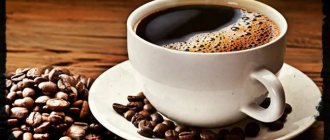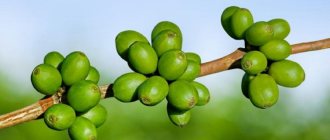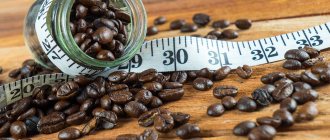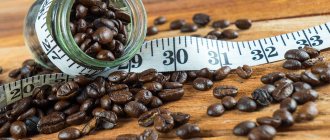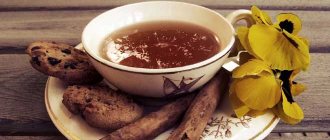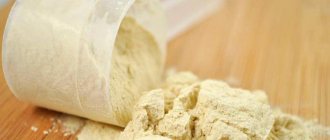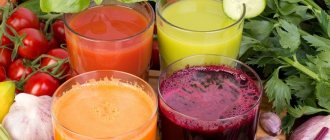What to drink tea with?
What to drink tea with?
No matter how much of a gourmet we consider ourselves to be, you can’t argue with genetic memory: no, no, yes, you’re tempted to eat oolong with delicious buns, and pu-erh with honey and jam. The British still drink strong black tea with sugar, milk and lemon - and nothing, they don’t frown. Different countries and different generations have their own tea drinking traditions. Maybe there are some things worth adopting? Let's delve into the question.
The Japanese, Chinese, Vietnamese and Taiwanese have similar traditions when it comes to tea: here it is customary to drink the drink in its pure form, without any “impurities”. In countries with ancient tea culture, the focus is on the aroma and taste of the infusion, which can have hundreds of shades. Here, if anything is added, it is only natural flavors: for example, jasmine or mint.
Indians are much more democratic in this regard: they add milk, sugar, and lemon to tea. Masala tea is a drink where tea is only guessed at, the rest is milk and spices. Turks and Iranians behave in a similar way with tea: they add allspice, star anise, ginger, cardamom; Nuts and dried fruits and oriental sweets are served with tea. And they drink mostly very strong black (red) tea - Indian or Ceylon.
In North Africa (Arab countries) they prefer green teas, to which they add mint and sometimes sugar. In hot weather, tea is mixed with citrus juice and ice to refresh.
In Europe, tea traditions are set by the British: their five-o'clock is as immutable a ritual as the changing of the guard at Buckingham Palace. We have already mentioned that in the UK they drink tea with anything: sugar, milk, sweets. In this way the British are similar to the Indians.
Rus' also had its own ceremonies: they set a samovar for the whole family, brewed strong black tea and drank from saucers, snacking on lump sugar, pies, bagels, jam and honey.
Actually, we are not far from our ancestors: in most families they drink tea with sugar, lemon and sweets. By the way, lemon is considered a purely Russian “invention”: they first started drinking tea this way here, in the 19th century, and only then in other countries. However, in the Middle East, citrus fruits are also often added to tea: oranges, lemons, grapefruits. But in our case, it’s not even a matter of taste, but the fact that lemon in those days was a sign of wealth, and it was served on every occasion (like sugar), showing its status.
So which combination is right?
Sugar softens the taste of strong black tea, and in this form it is healthier for the stomach, and also stimulates brain function. But it also absorbs valuable vitamin B1, and also “muffles” shades of taste and aroma - if the tea is really good. Let’s keep silent about the harm to teeth and figure. The same story with sweets (sweets, nougat, marmalade, jam): all of them do not allow you to fully experience the rich taste. If you are used to eating sweet tea, try alternating first: a sip of tea - a piece of sweets, trying to taste the taste. Gradually, you can replace sweets with dried fruits or honey, which are much healthier.
By the way, chocolate with tea is very good for brain function and blood pressure - but only bitter.
Honey is a harmless alternative to sugar: you can add it directly to tea or eat it as a drink. Honey helps to lose weight: it contains the hormone orexin, which starts metabolism and breaks down fats. It’s not for nothing that our grandmothers and mothers gave us tea with honey: it really helps with colds, increasing sweating. Honey is best absorbed with green tea or oolong tea, but it should be added to slightly cooled, not hot tea (40-50 degrees) - then the healing properties of honey will not be affected.
Often tea is drunk with cakes, pies and sandwiches. In this case, drink tea with flour instead of water or juice. It is difficult to do without carbohydrates, but remember: flour, like sweets, does not allow you to feel all the shades of tea taste and its healing effect. To prevent this from happening, drink more tea if you eat sandwiches or pies - this will help digest food that is difficult for the body and invigorate you. For the same reason, it is better to drink very strong tea with flour tea - red or aged pu-erh.
Milk, like sugar, softens strong tea and removes excess bitterness. But this can be avoided by proper brewing: do not add too much tea and do not steep it for longer than 2 minutes. Then the tea bouquet will not suffer, as is the case with milk (although much less than due to sweets).
The British and Asians—Mongolians and Indians—love to drink tea with milk, adding spices and spices to the mixture (masala tea). But here we are talking about another drink, so there is no particular point in “sniffing” the tea bouquet: it is drowned out by the spices.
If we ignore the taste, then milk in tea is more good than bad: it contains more than 100 useful substances, including 20 vitamins and easily digestible protein. In combination with tea, milk is also better absorbed than separately; it stimulates all body systems and strengthens them. The only negative is that milk reduces the tonic effect. To preserve all the benefits, add milk slightly warmed up (up to 40-60 degrees), and brew strong tea (green is also suitable).
Tea with fruit is drunk both for taste (natural flavoring) and for benefits. It works well in both cases: the fruits do not interrupt, but even enhance the taste of the tea and are really healthy, especially in their natural form. Moreover, the combination of taste and benefits is easy to regulate: dried fruits and jams are sweeter and tastier, but also less healthy. In this case, tea helps deliver fruit acids - citric, ascorbic, malic - to the necessary organs without irritating the mucous membranes. But don’t get carried away: if you add dried fruits directly to tea or eat too much of them, the taste and properties of the tea itself will suffer.
Tea with citrus fruits is a very healthy drink that quenches thirst, tones, and strengthens the body. Tea with lemon helps you escape the heat and keep you warm in the cold; the antioxidants in the composition help remove harmful substances in case of poisoning or hangover. But lemon has a rather negative effect on the taste of tea: the acid overpowers all other shades. At the same time, lemon does not reduce the nutritional or healing properties or even the strength of tea.
The spices of the tea help to open up, adding new notes and giving a very rich aroma. Most often, ginger, cumin, mint, star anise, and pepper are added, which stimulate blood circulation, help the brain and immunity, tone, and improve digestion. Ginger is especially useful, which in the east is used for literally everything. But it’s easy to overdo it with spices, and then the taste and aroma will be lost.
Breath of Summer
Even the most ordinary black tea can be transformed if you choose bright additives for it. What does tea come with? Mint has gained special love with its subtle, refreshing aroma. Pour 3 tbsp into a teapot. l. black tea, add 20 g of raisins, 4 dried apricots and prunes, pour the mixture with a liter of boiling water. Wrap the kettle with a towel and steep its contents for 20 minutes. Place 3-4 sprigs of fresh mint and a slice of dried orange or lemon at the bottom of the cup. Pour tea with dried fruits over them and let them brew for another 2-3 minutes. If home sweet lovers find the drink sour, add a couple of spoons of honey. Tea with mint perfectly relaxes and gives deep, restful sleep.
Currant positive
Blackcurrant is another popular type of tea additive. By the way, you can use both leaves and berries in recipes. Rub ½ cup of currants through a sieve and squeeze out the juice. Pound the remaining pulp in a mortar with 2-3 sprigs of mint and the same amount of rosemary. Dried herbs will also work. Brew a mixture of 2 tsp in a liter of boiling water. green or white tea, 1 tsp. currant leaves and berry mass. Infuse the drink for 15 minutes, strain, pour into cups and add 1 tbsp to each. l. berry juice, you can also add a few fresh berries. This is the best remedy for the incipient blues, which will instantly cheer you and your loved ones up.
Orange tea
You will need:
- orange juice – 100 ml;
- black tea – 4 tsp;
- water – 1 l;
- lemon juice – 50 ml;
- sugar – 50 g;
- cinnamon – 2 sticks;
- honey - to taste;
- cloves – 10 pcs.;
- orange zest.
Add sugar, spices and zest to the water. Bring to a boil, reduce heat to low and cook for a few more minutes. Then add tea and let the drink brew. Strain, add honey, orange and lemon juice.
Scientists have determined that sage-based tea helps fight coronavirus
Wild but wholesome
Do-it-yourself berry tea additives are no less useful than herbal ones. In this sense, the wild rose, or wild rose, has no equal. Lightly knead 100 g of fresh rose hips, fill them with a liter of hot water and simmer in a water bath for 15 minutes. Then keep the broth in a thermos for 10–12 hours. Remember, the longer the berries are infused, the more valuable properties they will impart to the drink. Using the same principle, tea is brewed from dry berries, first grinding them in a coffee grinder. Ready rosehip tea can be mixed with regular black or green tea. For the most picky gourmets, add a pinch of sage, nutmeg or star anise to the drink.
STAY IN TOUCH
Five cases when Arabica and Ceylon are not beneficial
The chief therapist of the Ministry of Health named the most common situations when doctors advise abstaining from strong (and in some cases any) coffee and tea.
1. High blood pressure.
“The ability to increase blood pressure is the most well-known property of these drinks (both coffee and tea. - Ed.), which needs to be remembered,” the doctor emphasizes.
This does not mean that coffee is contraindicated for hypertensive patients - you should wait with espresso or cappuccino precisely at the moment when the pressure has risen above normal.
2. Taking medications.
Few people think of washing them down with coffee, but swallowing tablets with tea is more common. Meanwhile, both drinks can affect the effectiveness of medications, warns Professor Drapkina. It is also not recommended to take medications with herbal teas.
3. Fight a hangover.
Caffeine-containing drinks increase the load on the cardiovascular system, which already suffers in those who have had too much alcohol. In addition, coffee and tea have a diuretic effect, which increases dehydration. Namely, it is one of the reasons for poor health during withdrawal symptoms (hangover syndrome), the expert explains.
4. Breakfast replacement.
“It’s better not to drink strong tea or coffee on an empty stomach - both of them, especially the second, can irritate the gastric mucosa,” says Dr. Drapkina.
5. Relax before bed.
This happens less often with coffee, and evening tea drinking has become a tradition in some families. However, do not forget that both drinks contain caffeine. If you have trouble sleeping, try moving coffee breaks and tea ceremonies to the first half of the day, doctors advise. Caffeine can not only interfere with falling asleep, but also change the quality of sleep, making it shallow, the expert notes.
Drink for the mind
In Rus', like nowhere else, they knew a lot about herbal additives in tea. Our ancestors especially revered St. John's wort, which they stored in large quantities for the winter. In the autumn, it is best to warm up with an infusion of St. John's wort with jam. It can also be brewed with regular tea. To do this, mix 2 tbsp. l. black or green tea to your taste and St. John's wort itself, pour them with a liter of boiling water and leave for 5 minutes. Then dissolve 3 tbsp in tea. l. apricot jam and leave for another 2-3 minutes. This drink warms you up well and energizes you. It will be especially useful for schoolchildren, since St. John's wort helps to better cope with mental stress.
